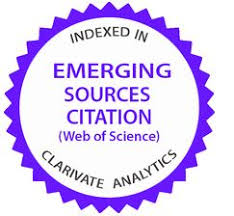Interorganisational Collaboration Workflow Challenges and the Potential of Technology Integration for E-Payment Process Improvement: A Case Study of a Malaysian Public Sector Agency
Abstract
The Internet revolution has transformed payment systems globally, accelerating the adoption of electronic payments and advancing the agenda of a cashless society. In Malaysia, this shift has gained momentum in both public and private sectors, with Bank Negara Malaysia reporting over RM551 billion in electronic payment transactions in 2024. However, persistent challenges in interorganisational collaboration workflows among government agencies in Malaysia, acquiring banks, and accounting offic’s continue to hinder post-collection efficiency. The Auditor General’s 2022 report highlighted over RM6 billion in delayed fund transfers, leading to late revenue recognition and operational inefficiency. Employing a qualitative case study approach, this study explores the challenges of interorganisational collaboration workflows within the Transport License Department’s electronic payment process. Four major themes emerged: non-integrated operations, operational inefficiencies, service level discrepancies, and communication barriers. Four human-centred themes such as brain drain, individual effort, personal traits, and the need for appreciation revealed the socio-organisational dimensions influencing workflow performance. The study contributes to the body of knowledge by extending the interorganisational collaboration framework with a fifth dimension: human attributes. Practically, it advocates for integrated digital systems, service level agreement enforcement mechanisms, and institutional recognition strategies. At the same time, the findings are based on a single case and offer a valuable reference for the broader public sector agencies. Future research should explore the suitability of technology, particularly blockchain technology, artificial intelligence, cloud computing and big data, in strengthening interorganisational workflows. Overall, this study offers a holistic view of structural and human attributes essential for optimising public sector e-payment systems.
Keywords
Full Text:
PDFRefbacks
- There are currently no refbacks.
This journal is indexed by:


![]()
![]()
![]()
ISSN : 2180-3838
e-ISSN : 2716-6060
